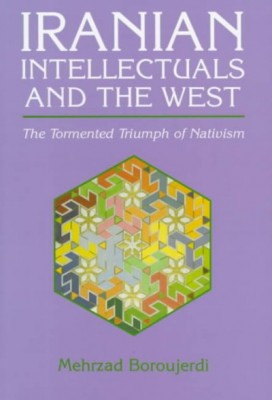| Iranian Intellectuals and the West: The Tormented Triumph of Nativism Contributor(s): Boroujerdi, Mehrzad (Author) |
|
 |
ISBN: 0815604335 ISBN-13: 9780815604334 Publisher: Syracuse University Press OUR PRICE: $17.96 Product Type: Paperback Published: November 1996 Annotation: "Social scientists interested in the symbiosis between Orientalism and Anti-Orientalism will find this book fascinating". -- Ervand Abrahamian, City University of New York "At last we have a more rounded, nuanced presentation of this multifaceted and lively intellectual world.... An achievement for which we are all grateful". -- Roy P. Mottahedeh, Harvard University |
| Additional Information |
| BISAC Categories: - History | Middle East - Iran - Political Science |
| Dewey: 955.05 |
| LCCN: 96027371 |
| Series: Modern Intellectual and Political History of the Middle East |
| Physical Information: 0.64" H x 6.06" W x 9.02" (0.90 lbs) 276 pages |
| Themes: - Cultural Region - Middle East |
| Descriptions, Reviews, Etc. |
| Publisher Description: Mehrzad Boroujerdi challenges the way many Americans perceive present-day Iran as well as how Iranians view the West. He examines the works of thinkers seminal in defining modern Iran (virtually unknown in the U.S.) and concludes the Islam was not the primary source of their inspiration. Their efforts to forge an "authentic" national identity lay at the heart of Iranian thought. These intellectuals (both religious and secular) appropriated Islam as the vehicle through which they could most effectively challenge or accommodate modernity and Westernization. Through such a fitting appropriation, Boroujerdi asserts, could modern Iranian thinkers lay the foundation for a nativist vision of an unsullied culture, seemingly free of Western influence. Drawing on the works of Michel Foucault and Edward Said, this book explores how Iranians use their own misunderstandings about the West to form their own identity and, in return, how Westerners describe Iran in negative terms to help them reaffirm the superiority of their own culture. Boroujerdi also argues that Iranian intellectuals have been deeply indebted to Western thought, which has served as the cultural reference through which they continue to struggle with issues of identity and selfhood. |